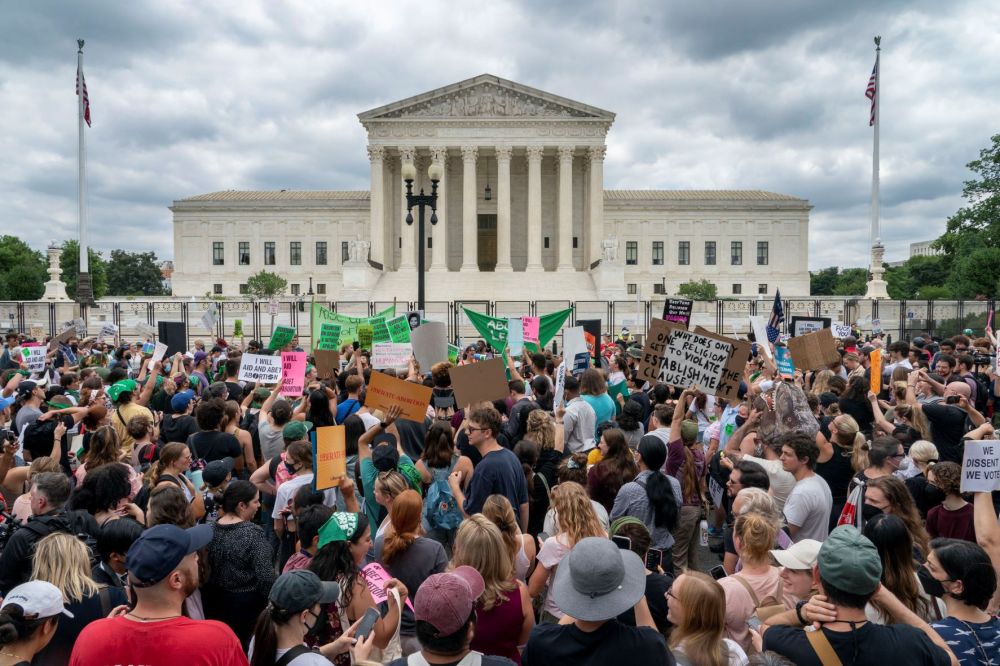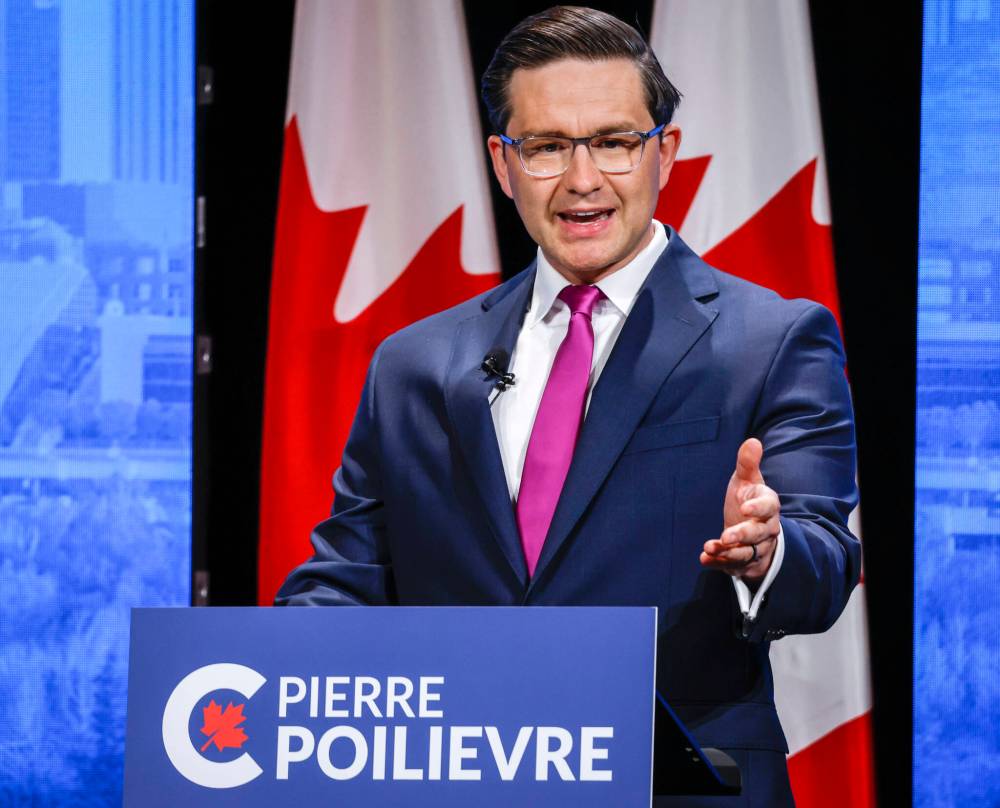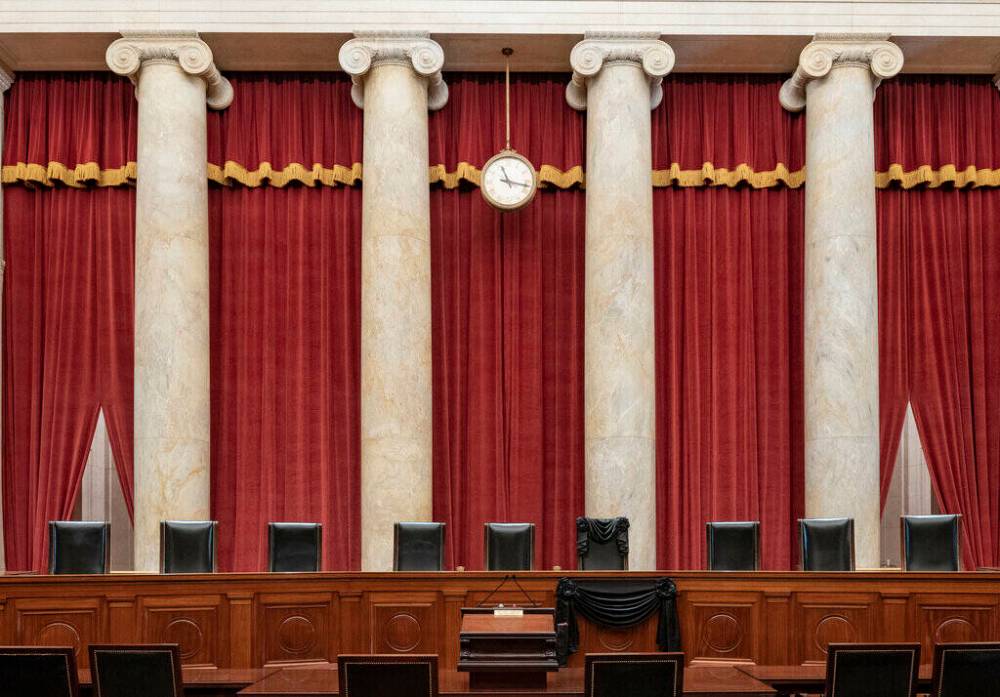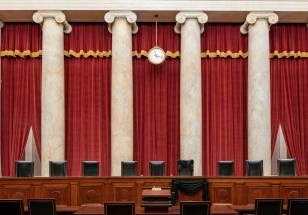SCOTUS decision shows importance of elections
Read this article for free:
or
Already have an account? Log in here »
To continue reading, please subscribe:
Monthly Digital Subscription
$0 for the first 4 weeks*
- Enjoy unlimited reading on winnipegfreepress.com
- Read the E-Edition, our digital replica newspaper
- Access News Break, our award-winning app
- Play interactive puzzles
*No charge for 4 weeks then price increases to the regular rate of $19.00 plus GST every four weeks. Offer available to new and qualified returning subscribers only. Cancel any time.
Monthly Digital Subscription
$4.75/week*
- Enjoy unlimited reading on winnipegfreepress.com
- Read the E-Edition, our digital replica newspaper
- Access News Break, our award-winning app
- Play interactive puzzles
*Billed as $19 plus GST every four weeks. Cancel any time.
To continue reading, please subscribe:
Add Free Press access to your Brandon Sun subscription for only an additional
$1 for the first 4 weeks*
*Your next subscription payment will increase by $1.00 and you will be charged $16.99 plus GST for four weeks. After four weeks, your payment will increase to $23.99 plus GST every four weeks.
Read unlimited articles for free today:
or
Already have an account? Log in here »
Hey there, time traveller!
This article was published 27/06/2022 (1261 days ago), so information in it may no longer be current.
There are myriad lessons and endless points of discussion to be drawn by last Friday’s decision by the U.S. Supreme Court to overturn Roe v. Wade, the landmark 1973 decision that ruled the Constitution of the United States generally protects a woman’s right to choose to have an abortion.
Most of the lessons are specific to the American experience, and are illustrative of an ever-deepening ideological polarization within U.S. society. The nation’s democratic institutions and, indeed, democracy itself seem very much to be at risk in the tumultuous months and years that lie ahead.
There’s one lesson from the Roe v. Wade unravelling, however, that transcends America’s national disagreements and would be well heeded by citizens of this and every other democracy in the world:
Voting matters.
The nation’s democratic institutions and, indeed, democracy itself seem very much to be at risk in the tumultuous months and years that lie ahead.
As much as it has been fairly argued that the overturning of the abortion decision is the culmination of decades of determined effort in political and judicial circles by America’s anti-choice Republican right, the simple fact of the matter is the death of Roe v. Wade would almost surely not have come to pass had Donald Trump not been elected U.S. president.
One of the oft-repeated promises in Mr. Trump’s ultimately successful 2016 election campaign was that he would fulfil Republican’s long-held dream of an enduring conservative majority on the U.S. Supreme Court. By appointing justices Neil Gorsuch, Brett Kavanaugh and Amy Coney Barrett, the former president delivered on that promise.
That the three Trump-appointed justices appear to have been untruthful in their confirmation hearings, during which each was asked whether they would seek to overturn Roe v. Wade and each answered they considered it settled precedent is irrelevant at this point. The decision has been made, and the rights of American women have consequently been dialed back half a century or more.
Let abortion decision radicalize you

Posted:
Friday was a dark day for reproductive rights, no question. Feel the disgust, the sorrow and the rage, but let it light a fire in you, especially if you are a millennial or member of Gen Z who has always had access to abortion.
The U.S. Supreme Court — whose members are unelected and appointed for life — has always been subject to political manipulation by whichever side held power at the moment a vacancy was created, but the process has become increasingly partisan and rancorous in recent years. And delivering a decision that runs counter to the opinion of the majority of the American public — as last Friday’s clearly does — illustrates the danger inherent in the politicization of a public institution such as the Supreme Court.
In Canada, the highest court and appointments thereto tend not to be the subject of deep-rooted partisan chicanery. But that doesn’t mean it, or other fundamental public institutions, are immune to such political interference.

Witness, for example, recent promises by Pierre Poilievere, the leading candidate for leadership of the Conservative Party of Canada. Mr. Poilievre has vowed that if elected leader and, subsequently, prime minister, he will fire the governor of the Bank of Canada, the independent body that sets monetary policy for the nation.
Few people fully understand what the BoC does, and Mr. Poilievre has capitalized on this lack of public knowledge by casting the central bank’s governor as a villain worthy of scorn. He promises to “replace him with a new governor who would reinstate our low-inflation mandate, protect the purchasing power of our dollar and honour the working people who are in those jobs” — in other words, turn an independent policy-setting institution into a body subservient to the ideological whims of the government of the day.
It’s pure populist political calculation whose cynicism and opportunism are fully apparent. And if Mr. Poilievre sensed there was advantage to be gained by rekindling the debate over abortion access in this country, is there any doubt he would seek to exploit it?
Voting matters.










